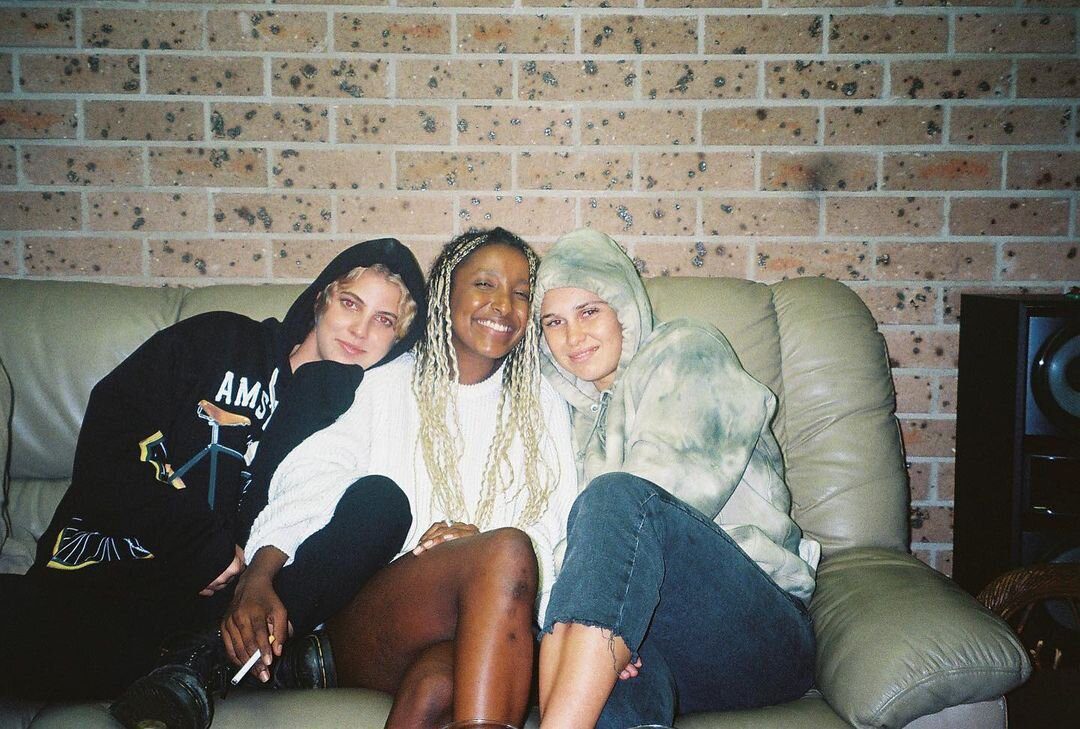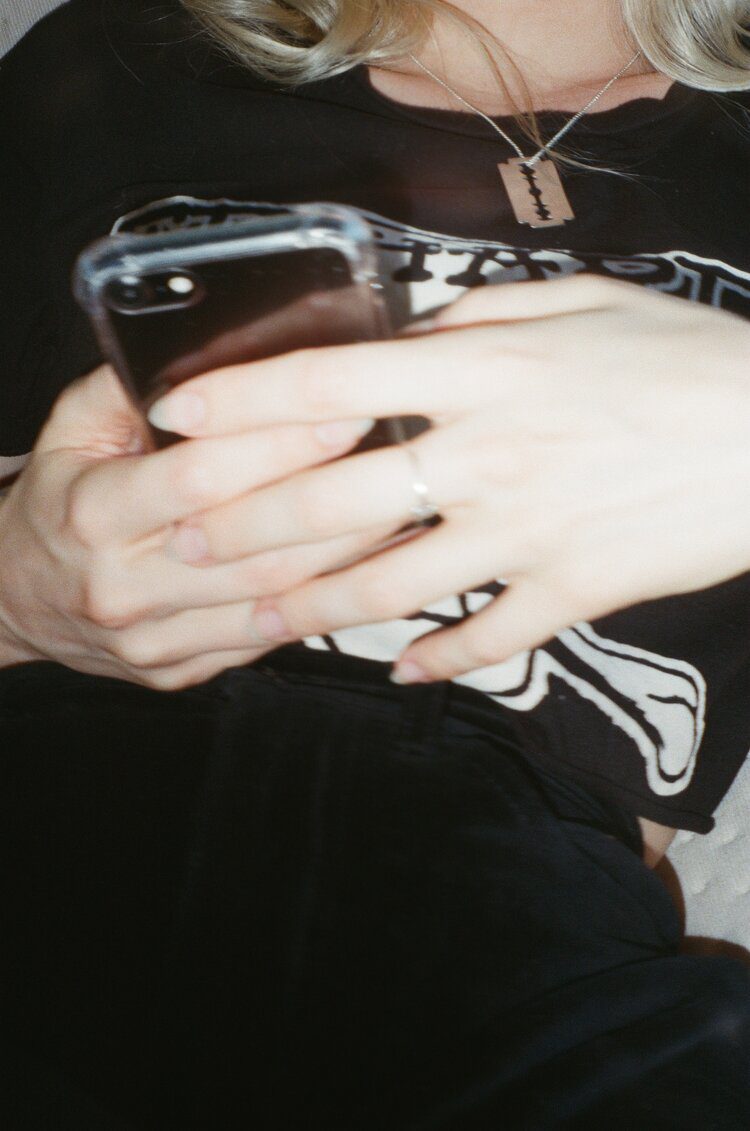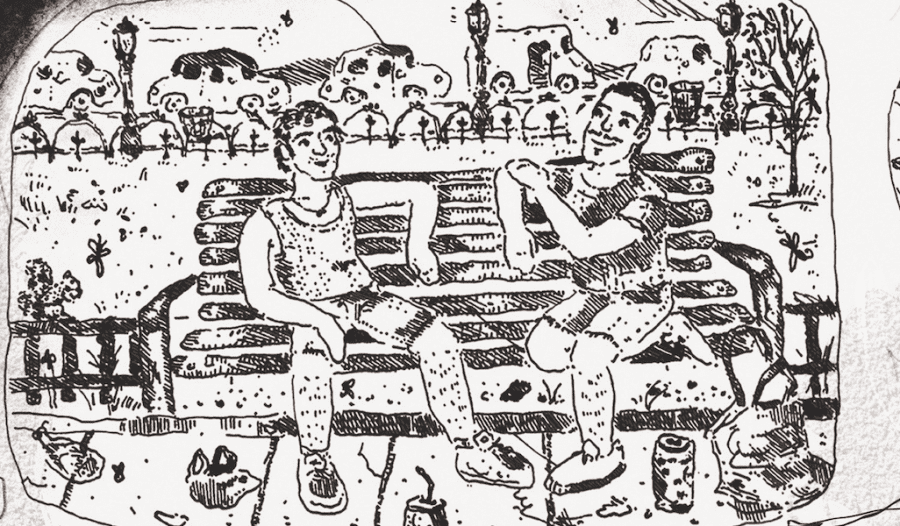Sweet like sugar
The story of a Sugar Daddy scam
My best friend and newly turned housemate Liyu squealed from her room, equal parts glee, shock and hilarity echoing from the top of her range. “What?” I yelled at her from behind my closed door. She tumbled in, reading a message request she’d received. Topped with the expected flattery, the message was from a profile claiming to be an affluent Sugar Daddy, offering $7,000 USD per week in exchange for nothing but emotional support and companionship. These sorts of messages tend to pop up now and again, and had it not been a pandemic, potentially we would’ve paid less attention to it. Liyu is definitely more morally steadfast than I am, whereas I readily indulge in more hedonistic endeavours as a form of play – probably the worst and perfect person to call on when mystery finds you. So call it cabin fever, or my innate love of playing devil’s advocate, but we quickly agreed to suss out the offer, downloading WhatsApp as the user, now calling himself Sweet Daddy, had asked us to.
Of course we flagged the dangers of using the internet immediately, but our minds couldn’t help but ponder what this allowance might mean for our savings plans, our housing situation, and everything in between. “We are going to the Bahamas!” I quipped, with a characteristically complex fusion of humour, naivety and a ‘nothing really matters anyway’ attitude. We agreed we would co-manage the arrangement and split the profits on the slim chance that it was real.

With my acquired knowledge of the psychology of Sugar Daddy arrangements, it seemed legitimate by the questions that he asked on WhatsApp, wanting to know Liyu’s backstory and her goals. In return he shared his story of the loss of his young family, his loneliness as a wealthy man, and his desire to give young people more financial freedom. Despite his profile showing an overweight, middle-aged white male, our Sweet Daddy claimed his favourite pastimes were skydiving and an array of physical activities. As I sat tapping away on my laptop to meet work deadlines, Liyu began to unravel the logistics of how the arrangement would work. Sweet Daddy promised the first payment that day, accompanied by a set of rules that ranged from “there’s no doubting here, you must never doubt or argue with me” to “after two months of this arrangement, your allowance is gonna be doubled”. Hidden amongst them was a mention of an “international fee” he wanted us to pay in order to release the USD funds from cryptocurrency to us via Paypal. “It’s a fucking scam,” Liyu said, laughing, typing her exact thoughts back to the sender. He persisted for another couple of hours insisting he ought to be trusted, and sending an onslaught of videos from his other Babies announcing how grateful they were for their Sweet Daddy’s financial support. At this point, certainly the most logical thing to do would’ve been to block the number and IG profile. Instead, cheekily I told Liyu to ask him how much international fees were in AUD.
$480 was the magic number. A specific crypto portal had been sent to us as the place to pay. Looking at our dwindling bank accounts, a specific hunger overtook us. “It’s just like gambling, right?” Liyu asked me. We had made some slight savings this lockdown period, unable to visit our regular drinking haunts and dabble in the debauchery of a freer time. So agleam with thrill and an unravelling sense of mystery, we actually did it; we transferred the money, splitting the fee; suspended in disbelief for what we’d just done as tiny progress bars loaded verifying the payment’s delivery. Checking our accounts all the while, we moved money into secondary accounts with the knowledge that we may have just given away access to all of our money. The progress bar turned green, confirming that the funds had definitely left our hands, and not a cent more. Sweet Daddy stayed chatting the entire time, coolly exclaiming how close we were to having our funds.
What we were sent next, ranged from borderline unbelievable to horrifying. Having handed over her email, a notification from Paypal appeared on Liyu’s phone. A figure of $7,000 flashed onto the screen. We looked at each other, unsure if the imagined success had manifested. Opening the email, our stomachs flipped – the payment receipt we hoped we’d received was in fact a bill for the thousands. A note was written on the invoice, stating an additional $1,000USD in crypto was required to reverse the bill into the promised $7,000 payment. I went into damage control-mode, finding the customer support contact for the crypto platform we’d orchestrated our payment through and lodging a formal funds withdrawal request, knowing full well that the coin we’d bought into would soon be liquidated and vanish. All the while, Liyu began to threaten Sweet Daddy with legal action if our money wasn’t returned immediately. We were no longer his Sweet Baby, we were emboldened with the passion of uncovering whatever criminal activity syndicate this was part of.

Assessing the invoice for the second time, there was a female name, Australian address and phone number listed underneath Sweet Daddy’s pseudo-name. Using Facebook and Realestate.com.au to view the address, I matched the information to a girl who looked no older than 16. My gut told me this young human was hardly capable of conducting a scam of this intensity, but we rang the number anyway because, obviously, she’d somehow got herself involved. The throes of vigilante justice, backed by genuine humanitarian care are a particular kind of powerful. I suppose for someone aged 16, receiving a phone call from two strange young women rambling about an internet scam is bizarre and frightening, to say the least. She hung up on us twice, before opening a no-bullshit dialogue with us that revealed she’d been targeted by the same scam. Instead of being able to afford the initial payments however, she’d been told to hand over her Paypal details so Sweet Daddy himself could login and deposit the money directly to her. Liyu, aware of her hypocrisy, delivered a tough love speech to her about the importance of internet safety and we coached her through changing her passwords. As we said goodbye, she began to ask a question which we cut short by hanging up. “She was saying something”, Liyu realised, calling her back immediately. “What was that?”, Liyu asked as she re-answered our call. “I just wanted to know what to do if any of the money that’s waiting actually comes into my account?” the girl asked us. “What money?” we hit back. “There’s lots of money that says it’s pending on my Paypal.”
Breaking our own godly advice, with her permission, we looked into her Paypal account to reveal thousands of dollars worth of unpaid invoices sent from her account. The scope of the scam was international, and this girl’s Paypal was the roundabout for all of it. Very quickly, I ascertained that an additional email had been assigned to the account that didn’t belong to the account’s true owner. Sweet Daddy, was in fact very naughty, and we were going to end his reign of preying on the vulnerable/stupid once and for all. We cancelled all of the invoices, notifying each of his victims this had been done. And using basic IP address info, we found out our Sugar Daddy was not in fact situated in Maryland, USA as his WhatsApp number would suggest. Liyu rang Sweet Daddy, and a muffled voice answered saying, “Hey baby, can I call you back? I’m just going to work”, before hanging up. Liyu looked at me down the barrel. “That voice is African”, she said. Seconds after, she was blocked from contacting him.
Taking the number and email we had acquired, we rang him on my WhatsApp account. Surprisingly he answered. He doesn’t know Liyu like I do, a woman made fierce after rebuilding herself after escaping the poverty of Africa and assimilating into the insidious racism of Australia. But he came around very quickly over the next five minutes of Liyu’s verbal rampage. With an off-the-cuff speech touting the evils of taking from others when you have nothing, our Sweet Daddy, a young African man, listened with a combination of intrigue as to our “genius” in uncovering him, and laughter at Liyu’s well-aimed but slightly insulting humanistic jabs. “How did you find me?” he exclaimed. “I’m clever”, she said, matter-of-factly. He replied: “Well, I like you, you should work for me.”
Soon Sweet Daddy was video chatting us through WhatsApp. By this point, Liyu and I were in hysterics. How the actual fuck was this happening? She answered, holding her glare but unable to hide her amusement at this unfolding of madness. “So, are you surprised?” he asked, smirking. “YES!?” Liyu screeched, laughing. “You took my money!” Our Sweet Daddy was in fact a shirtless young Nigerian man smoking a joint backdropped by a painted mud-brick home. We certainly had anger directed towards this human, but it was tempered by an understanding that his life was far from our own. Other humans moved in the background, in what appeared to be a single room housing an African family.
Transfixed by her boldness, her obvious beauty and her willingness to talk, the young man began to make small talk with us. Liyu cut across him, and asked him why he would do something so evil and calculated. Before he could answer, she told him of her own life journey and how deeply saddened it made her to know an African brother could do this to an African sister. She spoke of her own brothers, and the choices a human has to get ahead through honest means or by creating more evil in an already evil world. She asked him how he knew if the money he’d taken wasn’t her rent, her food, her survival for this week. She asked him if he’d ever thought about the impact of this scam on his victims, or the effect it could’ve had on the 16-year-old girl we’d intercepted and released from his scheme. Something he couldn’t believe we’d figured out. As she spoke, his face and eyes widened, and his head fell in something that could only be recognised as genuine shame. He began to say he was sorry, and Liyu pushed on, asking if he was going to give the money back, not just to us, but to all of the young women he’d targeted. “I can’t listen to this, you’re making me feel bad’,’ he said. And then he hung up.
Seconds later, he unblocked Liyu on WhatsApp and apologised again. He explained of the hardship in his country, of the corruption that governed it and the difficulty he faced in finding legitimate work. She told him of the importance of doing better when you know better. We promised to make him and his friends resumes to help them find secure employment. But the fact was, the money was gone forever. We didn’t seem to care where. But suddenly, our great mysterious Sugar Daddy, the one who’d claimed to be able to provide for us, was the one most in need of being provided for.





















